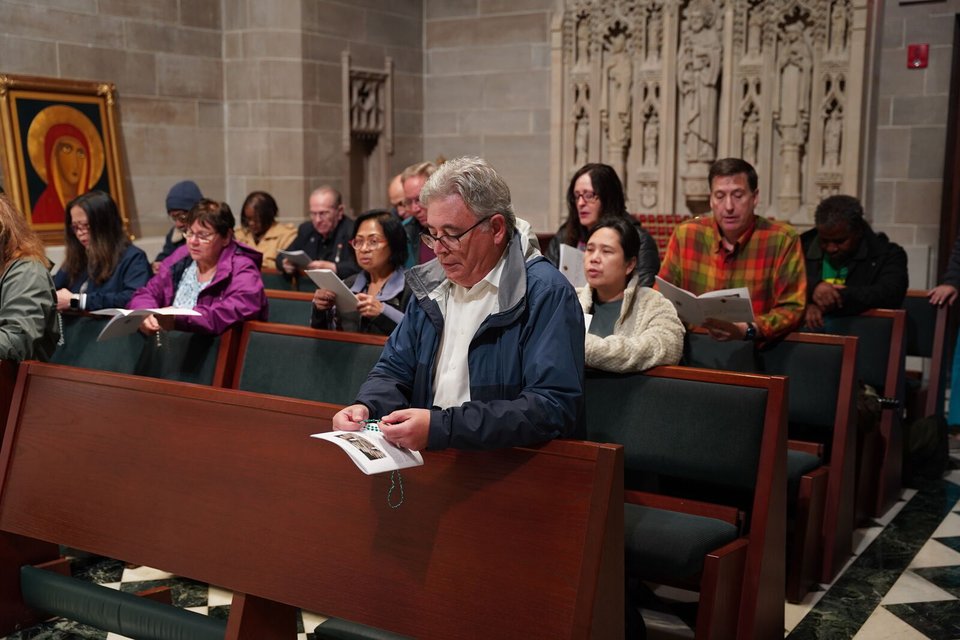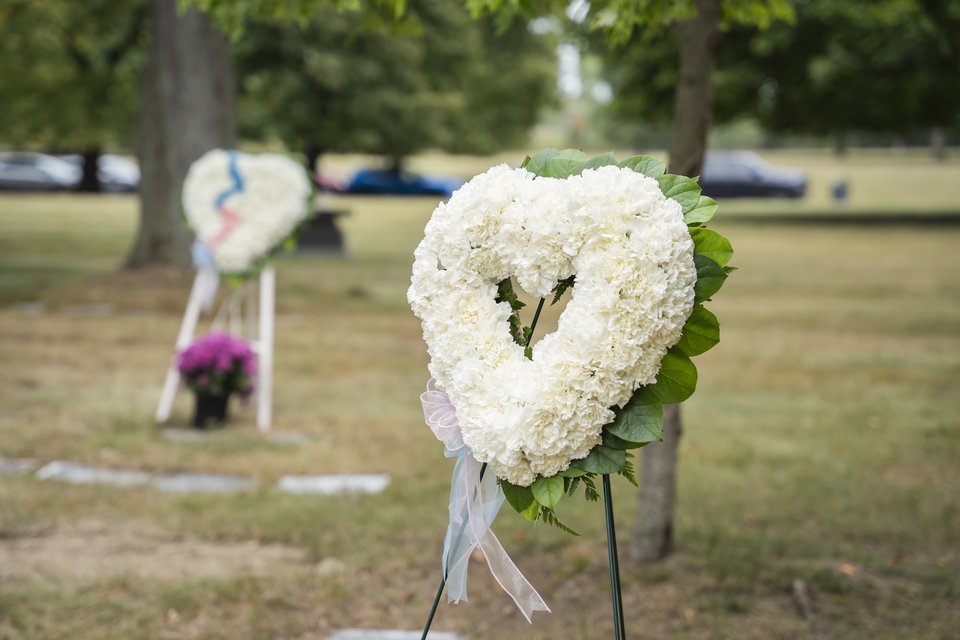Faithful gather at the National Shrine of the Little Flower Basilica in Royal Oak on the eve of national March for Life in D.C.
ROYAL OAK — Archbishop Allen H. Vigneron and pro-lifers across Metro Detroit gathered Jan. 18 at the National Shrine of the Little Flower Basilica in Royal Oak to give witness to the inalienable truth that life in the womb is, indeed, life.
The Vigil Mass for the Legal Protection of Unborn Life took place on the eve of the 2024 National March for Life in Washington, D.C., where an army of pro-lifers — including thousands from the Archdiocese of Detroit — marched down Constitution Avenue to bear witness to a pro-life culture.
Don't miss another story
Did you know you can get Detroit Catholic's latest daily or weekly articles delivered to your inbox? It's easy and free to sign up.
Archbishop Vigneron acknowledged the occasion for the gathering was a somber one — commemorating the Jan. 22 anniversary of the U.S. Supreme Court's decision in Roe v. Wade, which legalized abortion nationally, and on a more local level, the constitutional amendment that passed via Proposal 3 in November 2022, which guaranteed a right to abortion in Michigan following the overturning of Roe v. Wade.
But Archbishop Vigneron said that despite the challenges in giving witness to the culture of life, there are reasons for hope.
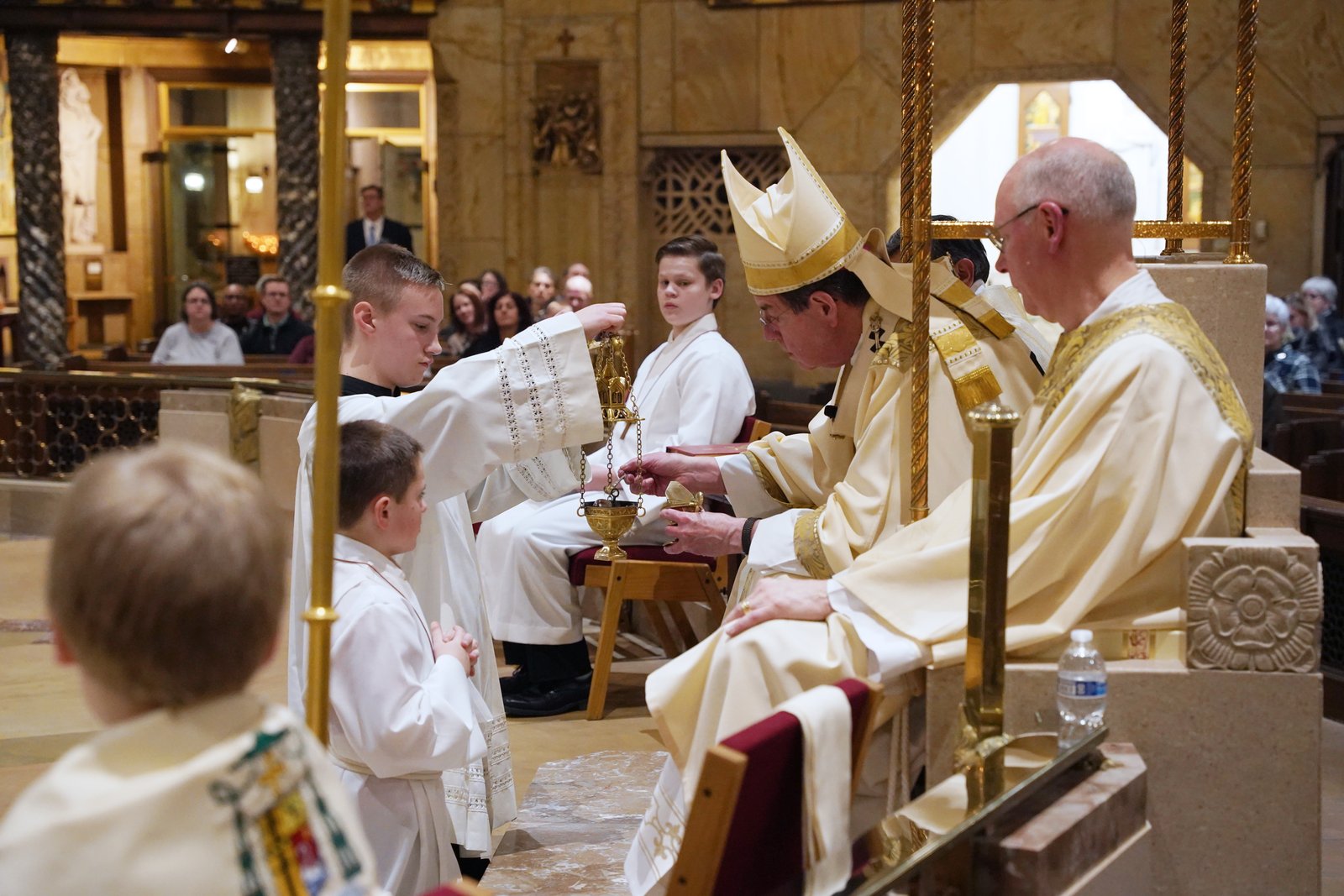
“Let’s not all dwell on the dark side of this event,” Archbishop Vigneron said during his homily. “I propose this be an occasion of grace for us — for grace to understand that God is at work in history, and grace for us to take hold once more of our responsibility to be agents of God in history.
“Let’s remember that we are blessed tonight,” Archbishop Vigneron added. “Blessed to be drawn together in order to invite the Gospel of Life into our world. We’re blessed to be confirmed in truth about the worth of every human life.”
Archbishop Vigneron — ever the philosophy professor — posed the philosophical question, “Why is life good?” to the congregation, before drawing on Pope St. John Paul II’s encyclical Evangelium Vitae (“The Gospel of Life”) as to why defending human life is paramount to giving witness to God as the author of all life.
The first reading from Isaiah reminds the people of God how, “The Lord called me from birth, from my mother’s womb he gave me my name,” the archbishop said.
The assertion that life exists inside the womb is a reminder of how God calls and knows each one of His children before they are born, and as the divine author of life, He has a plan for each and every person to be born and fulfill his or her potential, he said.
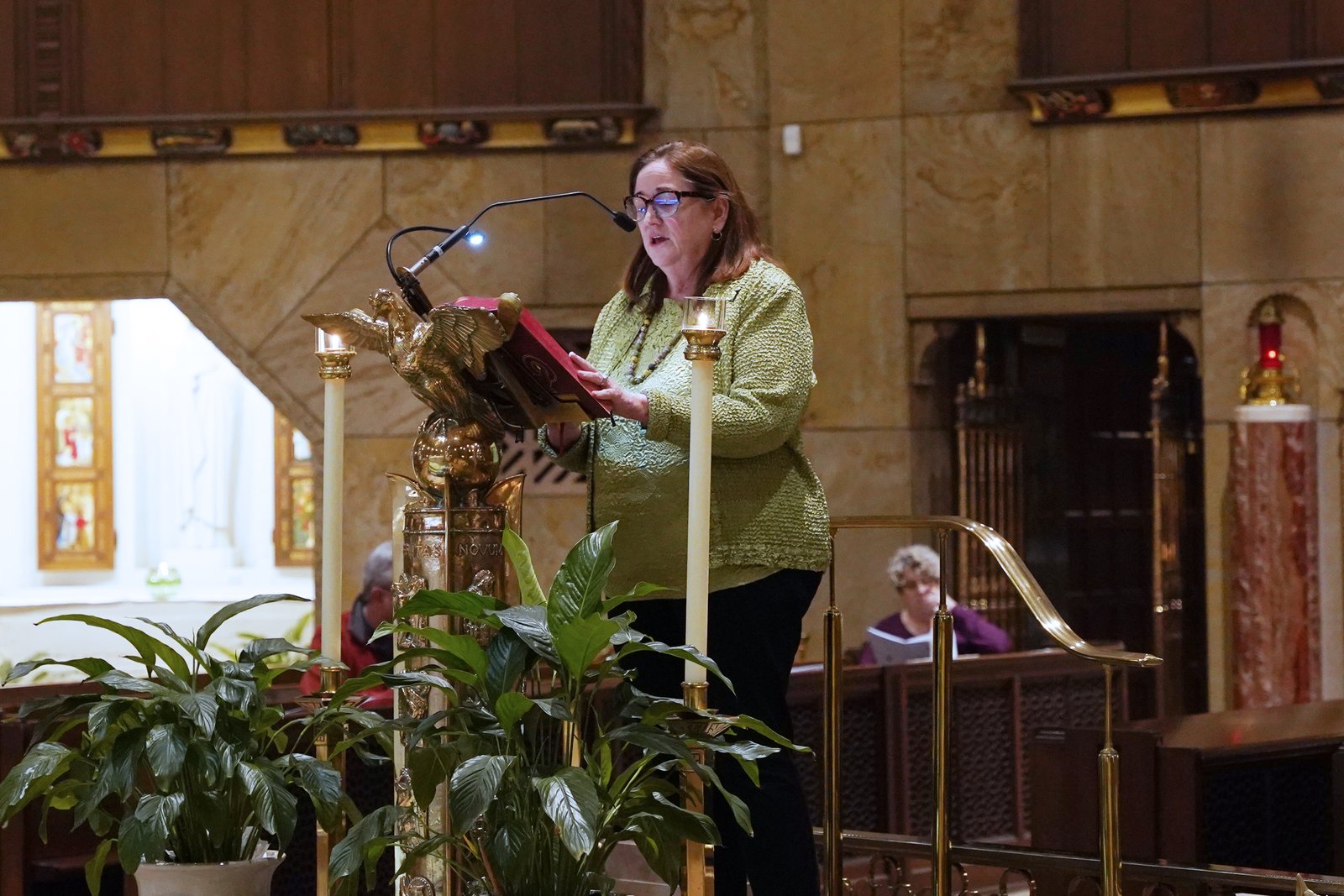
“Isaiah makes it clear that he is not the author of his life, but God is the author of Isaiah’s life,” Archbishop Vigneron said. “God is the author of life in two senses: First, He is the source of life. He is the one who gives life. Second, God is the author of life in the sense that He is the director of life, the one who gives life direction and purpose.
"We heard Isaiah say that he was called and named from birth. And the lesson for us is to understand that the sacredness of human life is made manifest because it comes from God Himself.”
The Gospel reading from St. Luke, recounting the Blessed Virgin Mary traveling to the hill country to visit her cousin, Elizabeth, also is an affirmation of life, with St. Elizabeth giving witness to the life in her own womb, St. John the Baptist, who leaped for joy the moment Mary — pregnant with Jesus — was in his and his mother’s presence.
“Elizabeth is a witness to the truth that the baby in her womb, John, is a living person,” Archbishop Vigneron said. “Someone who by his actions, even in the womb, begins his mission and ministry as serving as a witness to the savior.
"The lesson for us is that what was true in the life of John the Baptist is true for every life in the womb," the archbishop said. "It’s a person. It’s not a blob of cells. It’s a being, a human being, a brother and sister to all of us.”
These dual affirmations are meant to be fuel for missionaries and ambassadors of Christ to boldly proclaim the dignity and sacredness of life — even in a culture that seems opposed to life itself.
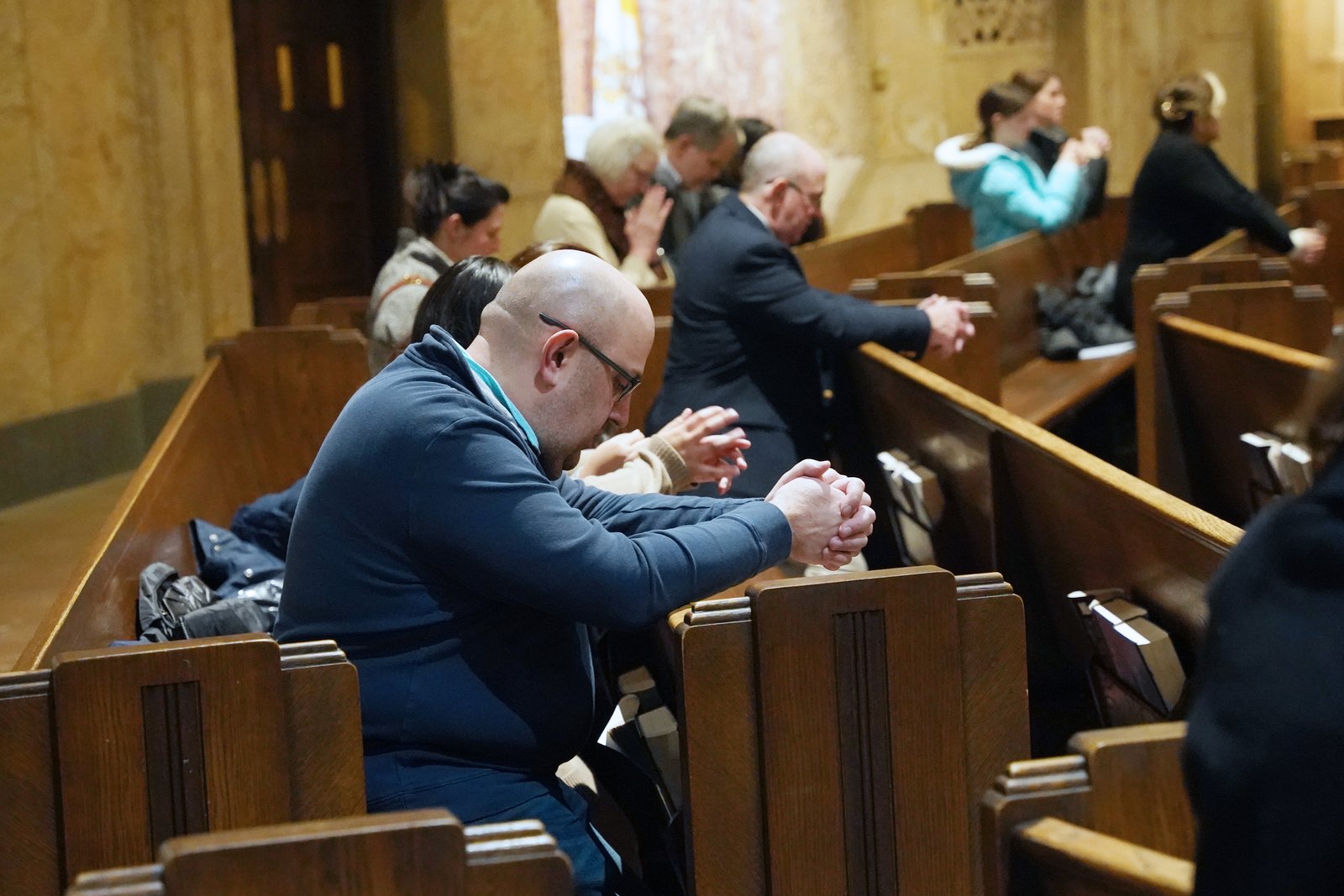
Archbishop Vigneron asked the congregation to look to the Blessed Virgin Mary to gain confidence in the pro-life cause amidst these difficulties, calling to mind Our Lady’s testimony when she visited Elizabeth.
“First of all, our weakness, whether political, social or cultural in serving and proclaiming the Gospel of Life, is not finally fatal,” Archbishop Vigneron said. “God is at work, and in the end, God cannot fail. God is powerful. So we stand in the power and strength of God.”
For the 200 or more faithful gathered at the basilica, the Mass marked an important milestone in the pro-life movement, the anniversary of the Roe v. Wade decision, when so many pro-lifers were awakened to the call to defend.
“I think for so many people, that date (Jan. 22, 1973) brings back memories, when Roe v. Wade first come through the Supreme Court. That is a day people remember,” Deacon Fred Billotto, associate director of evangelical charity for the Archdiocese of Detroit, told Detroit Catholic. “It’s a day of sadness, but maybe a day that caused them to draw closer to the Lord, to turn to prayer to Him and seek His intercession to overturn this.”
As thousands of pilgrims descend upon Washington, D.C., for the national March for Life, Deacon Billotto said parishes throughout the Archdiocese of Detroit are hosting holy hours during the Novena for Life from Jan. 17-23, offering people a chance to pray for life closer to home.
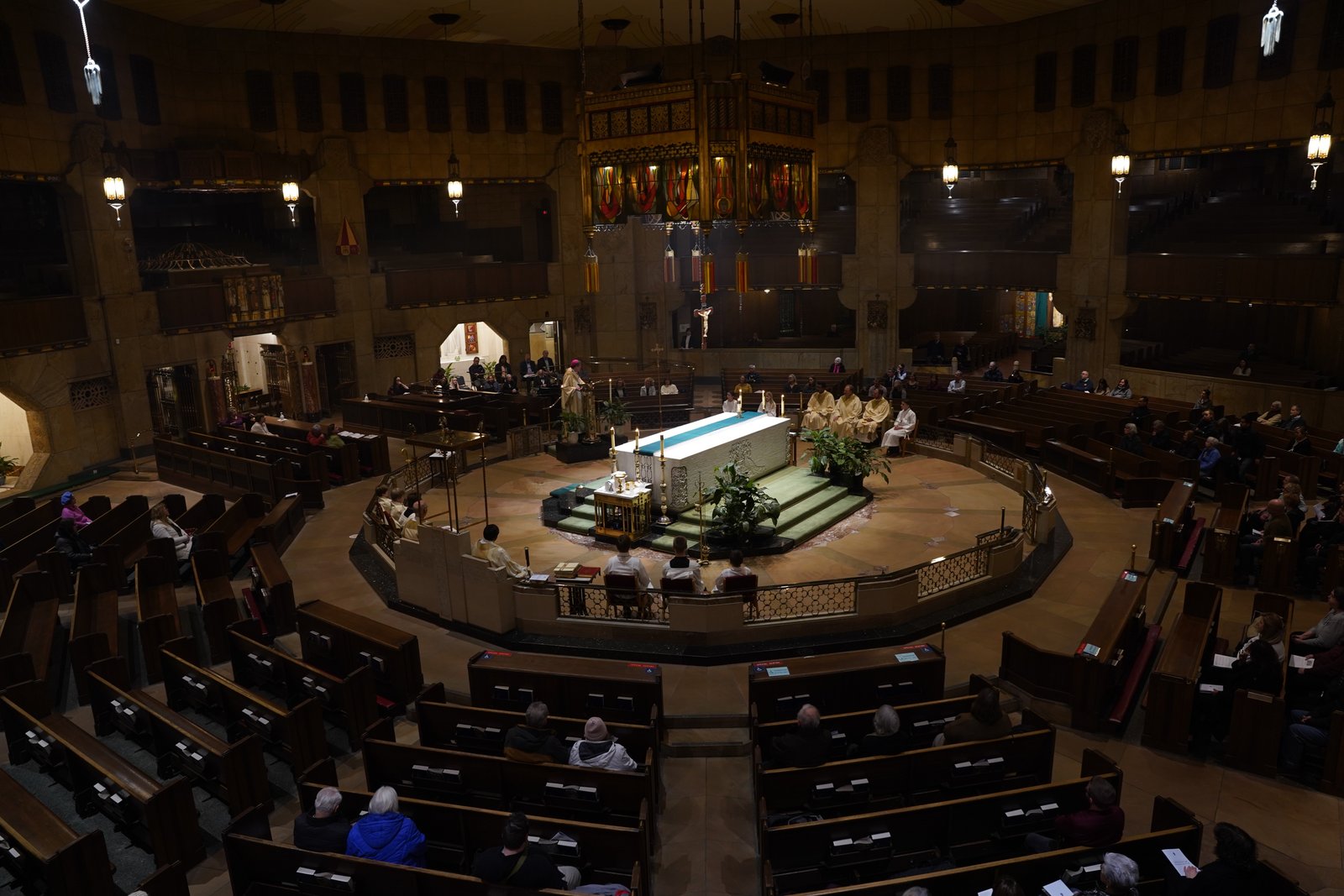
Deacon Billotto said the faithful can also get involved at the grassroots level, particularly through Walking with Moms in Need, a parish-centered initiative of the Archdiocese of Detroit and the U.S. Conference of Catholic Bishops that seeks to equip parishes to raise awareness of community resources to aid and assist mothers with dignity and compassion.
Deacon Billotto admitted that remaining optimistic in the pro-life movement can be exhausting, particularly after the passage of Proposal 3, but the night was a chance to pray for the souls of the unborn, the courage of mothers facing an unexpected pregnancy, the strength of parents and grandparents caring for a young woman carrying a child to term, and the conversion of those who have yet to see the inalienable value of life.
“Today I was praying for people to turn away from abortion; we can win this fight without legislation if people can just wake up and learn the truth about the evil of abortion and walk away from it,” Deacon Billotto said. “I was praying today for abortion workers, the doctors and nurses, those in the field, to just walk away from it. For moms considering abortions, for families considering abortions, for God to pour His mercy on them and to move their hearts away from it.”
Copy Permalink
Pro-life



